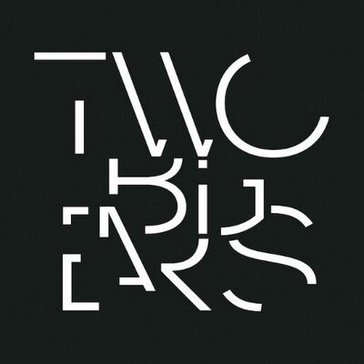Description

Allegro library

Papa Engine
Comprehensive Overview: Allegro library vs Papa Engine
Allegro Library and Papa Engine are both tools used in the realm of graphics and game development, but they serve slightly different purposes and target audiences. Here's a comprehensive overview of both:
a) Primary Functions and Target Markets
Allegro Library
-
Primary Functions:
- Allegro is a cross-platform library mainly used for video game development. It provides functionalities for handling graphics, sound, input (keyboard, mouse, joystick), timers, and resources such as images and fonts. It also supports file I/O and networking to some extent.
- It's particularly known for its ease of use and ability to quickly get simple games up and running.
-
Target Markets:
- Indie game developers and hobbyists.
- Educational environments, where developers are teaching newcomers to software development or game programming.
- Developers interested in creating lightweight 2D games and applications with straightforward graphics requirements.
Papa Engine
-
Primary Functions:
- Papa Engine is a game development engine aimed at providing developers with advanced tools for creating more complex 2D and 3D games. It typically includes features like physics engines, level editors, scripting languages, and high-level abstractions for managing game objects and interactions.
- It often comes equipped with a comprehensive suite for handling graphics, sound, artificial intelligence, and sometimes UI/UX design.
-
Target Markets:
- Independent developers seeking more advanced functionality beyond basic libraries, without stepping into large-scale engines like Unreal or Unity.
- Developers focusing on mid-level projects that demand more features than Allegro can offer.
- Studios looking for a cost-effective, customizable solution for specific game projects.
b) Overall Market Share and User Base
-
Allegro Library:
- Allegro has a niche but steady user base primarily among small developers and hobbyists. Given its focus on simplicity, it does not compete directly with industry giants like Unity or Unreal and hence occupies a smaller share of the market.
- The user community is passionate but more fragmented, as it tends to cater to individual projects or small teams.
-
Papa Engine:
- Papa Engine likely has a moderate market share, situated between simple libraries like Allegro and large-scale engines like Unity and Unreal. It appeals to those needing more resources and capabilities.
- The user base might be more professional than Allegro’s, focusing on indie studios and mid-size development teams. The adoption rate could be higher than Allegro's if the engine offers unique features or integrates well with industry standards.
c) Key Differentiating Factors
-
Complexity vs Simplicity:
- Allegro is designed for simplicity and ease of use, making it ideal for beginners and projects that do not require advanced capabilities. Conversely, Papa Engine likely offers more complexity and features that cater to developers needing to handle more sophisticated game mechanics.
-
Feature Set:
- Allegro provides all the basic tools for game development but does not include advanced features like a built-in physics engine or visual scripting.
- Papa Engine, on the other hand, might incorporate such advanced features, geared towards richer game environments and more intensive development processes.
-
Community and Support:
- Allegro has an established community on platforms like GitHub and forums where developers can seek assistance, but formal support might be limited.
- Papa Engine might have a more structured support system, possibly including professional services, documentation, and dedicated forums or user groups, especially if it targets a professional segment.
-
Scalability:
- Allegro would be best suited for small to medium-sized games.
- Papa Engine, depending on its capabilities and integrations, can handle larger, more demanding projects thanks to its potential for added flexibility and scalability.
Both Allegro and Papa Engine serve specific needs within the game development ecosystem, appealing to different forms of creativity and project requirements.
Contact Info

Year founded :
Not Available
Not Available
Not Available
Not Available
Not Available

Year founded :
Not Available
Not Available
Not Available
Not Available
Not Available
Feature Similarity Breakdown: Allegro library, Papa Engine
To provide a feature similarity breakdown for the Allegro library and the Papa Engine, we need to highlight their core functionalities, compare their user interfaces, and identify unique features that differentiate them from one another. It's important to note that these two are both aimed at game development but may have different focuses and design philosophies.
a) Core Features in Common
Both Allegro and the Papa Engine are designed to facilitate game development, and as such, they share several core features:
-
Graphics Support: Both provide API support for rendering graphics. Allegro includes functions for loading images, drawing primitives, and handling transparency, while Papa Engine also supports rendering but might include more advanced options tailored for specific types of games.
-
Event Handling: Both libraries allow developers to handle input events from keyboards, mice, and other controllers efficiently.
-
Audio Processing: They offer sound and music playback capabilities, allowing developers to integrate audio into their games.
-
Cross-Platform Support: Both are designed to be cross-platform to an extent, with Allegro supporting major operating systems and Papa Engine likely also offering some level of cross-compatibility.
-
Timing Functions: They typically provide functions for controlling game timing, such as managing frame rates.
b) User Interface Comparison
The user interfaces for Allegro and the Papa Engine can have several differences:
-
Allegro: This is more of a low-level, lightweight package. Its interface consists mainly of C functions and structs, expecting the developer to manage most of the aspects of game development, which offers flexibility but requires more from the developer's end.
-
Papa Engine: If it is marketed more as an engine rather than a collection of libraries, it might include a more comprehensive SDK or integrated development environment (IDE). This could include more visual tools and editors, allowing for a more drag-and-drop style of development, which could be friendlier for less experienced developers or projects that require rapid prototyping.
c) Unique Features
Each solution may offer unique features that cater to different segments of game development:
-
Allegro: Its strength lies in simplicity and ease of understanding. While it might not offer out-of-the-box complex 3D support, its modular architecture allows a great deal of flexibility for users who want to dig into custom or retro-style 2D game development.
-
Papa Engine: May offer specific tools for certain types of games, like built-in physics, artificial intelligence libraries, or networking capabilities that go beyond what Allegro provides. Additionally, it might target a more specific audience by providing advanced graphics or VR support, which are beyond Allegro's typical scope.
In summary, while both Allegro and Papa Engine are tools aimed at game developers with overlapping core features, their appeal can diverge based on their targeted use-cases, user-interface design, and the unique capabilities they offer. Developers choose between them based on their specific needs in terms of flexibility, complexity, and the types of games they wish to produce.
Features

Not Available

Not Available
Best Fit Use Cases: Allegro library, Papa Engine
Allegro Library and Papa Engine are tools designed for specific types of applications, each with unique strengths that make them more suitable for certain business needs or projects.
Allegro Library
a) Best Fit Use Cases
The Allegro Library is a highly versatile library primarily geared towards the development of video games and multimedia applications. Here’s a closer look at where it shines:
-
Indie Game Development:
- Small to Mid-sized Game Studios: Its simplicity and well-documented features make Allegro particularly appealing to indie developers or small studios focused on 2D game projects.
- Prototyping: Quick setup and ease of use make it ideal for prototyping and experimenting with game mechanics.
-
Educational Projects:
- Learning and Teaching: Allegro is often chosen for educational purposes in teaching game development concepts due to its straightforward API and accessibility.
- Student Projects: Perfect for students working on individual or team-based projects where learning the basics of game development is the focus.
-
Retro Games and Simple Multimedia Software:
- Nostalgic Games: Developers aiming to create games with a classic or retro feel will find Allegro’s straightforward capabilities beneficial.
- Simple Multimedia Applications: Its multimedia handling makes it suitable for projects requiring basic sound, graphics, and input management.
Papa Engine
b) Preferred Scenarios
The Papa Engine excels when it comes to data processing and advanced computational tasks, so its use cases differ significantly from those of Allegro:
-
Data-Intensive Applications:
- Analytics Platforms: Companies developing data analytics software where large-scale data processing is required can leverage Papa Engine’s capabilities.
- Financial Services: Suitable for robust financial modeling, risk analysis, and quantitative trading systems due to its performance efficiency.
-
AI and Machine Learning:
- AI Research and Development: Ideal for developing machine learning models that require extensive data manipulation and numerical operations.
- Predictive Analysis: Companies focused on predictive analytics across industries such as healthcare, finance, or marketing can benefit from its processing power.
-
Enterprise Software Solutions:
- Large-Scale Enterprise Applications: Businesses needing high-performance computing for applications dealing with big data in sectors like logistics, telecommunications, and manufacturing are prime candidates for using Papa Engine.
Catering to Industry Verticals and Company Sizes
Allegro Library:
- Industry Verticals: Primarily serves the gaming and education verticals. Particularly aligns with industries focused on digital entertainment, interactive software, and educational technology.
- Company Sizes: Best suited for small to medium-sized enterprises (SMEs), startups, and educational institutions where project scopes are more focused and resources may be limited.
Papa Engine:
- Industry Verticals: Caters to a broader range of sectors, including finance, healthcare, technology, and any industry reliant on data analytics and high-performance computing.
- Company Sizes: More appropriate for medium to large companies or those with extensive computational needs, such as corporations with dedicated data science teams or tech firms involved in machine learning development.
Overall, Allegro Library and Papa Engine serve distinct purposes. Allegro is well-suited for creative and educational projects involving graphics and multimedia, whereas Papa Engine is tailored for computationally intensive and data-driven applications, making each valuable within its niche.
Pricing

Pricing Not Available

Pricing Not Available
Metrics History
Metrics History
Comparing undefined across companies
Conclusion & Final Verdict: Allegro library vs Papa Engine
To draw a conclusion and provide a final verdict on the Allegro library and the Papa Engine, I will analyze their strengths, weaknesses, and overall value to help users make an informed decision.
a) Best Overall Value
Evaluating which product offers the best overall value depends on the specific needs of the user. However, in general terms:
- Allegro Library: Often known for its versatility and ease of use, particularly for 2D game development. It has been in the market for a long time and has a solid community backing.
- Papa Engine: Respected for its performance in handling complex tasks and more modern features suited to 3D development environments. It might be more suitable for those seeking high performance at scale.
For best overall value:
- Allegro Library is likely the better choice for developers focused on simpler, less resource-intensive projects that benefit from a well-documented, user-friendly approach.
- Papa Engine may tilt the scale for projects demanding extensive 3D capabilities and high performance where the latest graphical features are needed.
b) Pros and Cons
Allegro Library
Pros:
- Ease of Use: Simple API makes it accessible for beginners and fast prototyping.
- Community Support: Longstanding user base provides a wealth of resources and assistance.
- Versatility: Suitable for a wide range of 2D applications.
- Lightweight: Less resource-intensive, performing well on lower-end hardware.
Cons:
- Limited 3D Capabilities: Primarily focused on 2D, Allegro might not be the best choice for high-end 3D projects.
- Feature Set: Might lack some modern, advanced features compared to newer engines.
Papa Engine
Pros:
- Performance Optimization: Capable of handling high-performance, feature-rich applications.
- 3D Focused: Better suited for projects that require modern 3D graphics and effects.
- Scalability: Well-equipped to scale with demanding applications.
- Modern Features: Offers latest tools and functionalities needed for contemporary development.
Cons:
- Learning Curve: Potentially steeper learning curve, particularly for beginners.
- Resource Intensive: May require more powerful hardware and more resources.
- Less Community Support: If newer, might not have as extensive a community as older libraries like Allegro.
c) Recommendations for Users
-
For Beginners or Those Focused on 2D Projects: Start with the Allegro library due to its ease of use, wide community support, and ample documentation. It offers a smoother entry into game development.
-
For Advanced Users or Projects Requiring 3D Capabilities: Consider Papa Engine if your project demands high performance and modern 3D capabilities. It’s better suited for developers looking to exploit the latest in graphics technology.
-
Decision Criteria: Evaluate your project goals, available resources, and personal or team expertise before making a decision. Experimenting with both, if time allows, can provide hands-on experience to better understand their fit for your specific needs.
In conclusion, selection should be driven by project scope and technical requirements. For simpler projects and quick start, Allegro provides an excellent foundation. For cutting-edge and resource-demanding applications, Papa Engine is a powerful alternative.
Add to compare
Add similar companies



